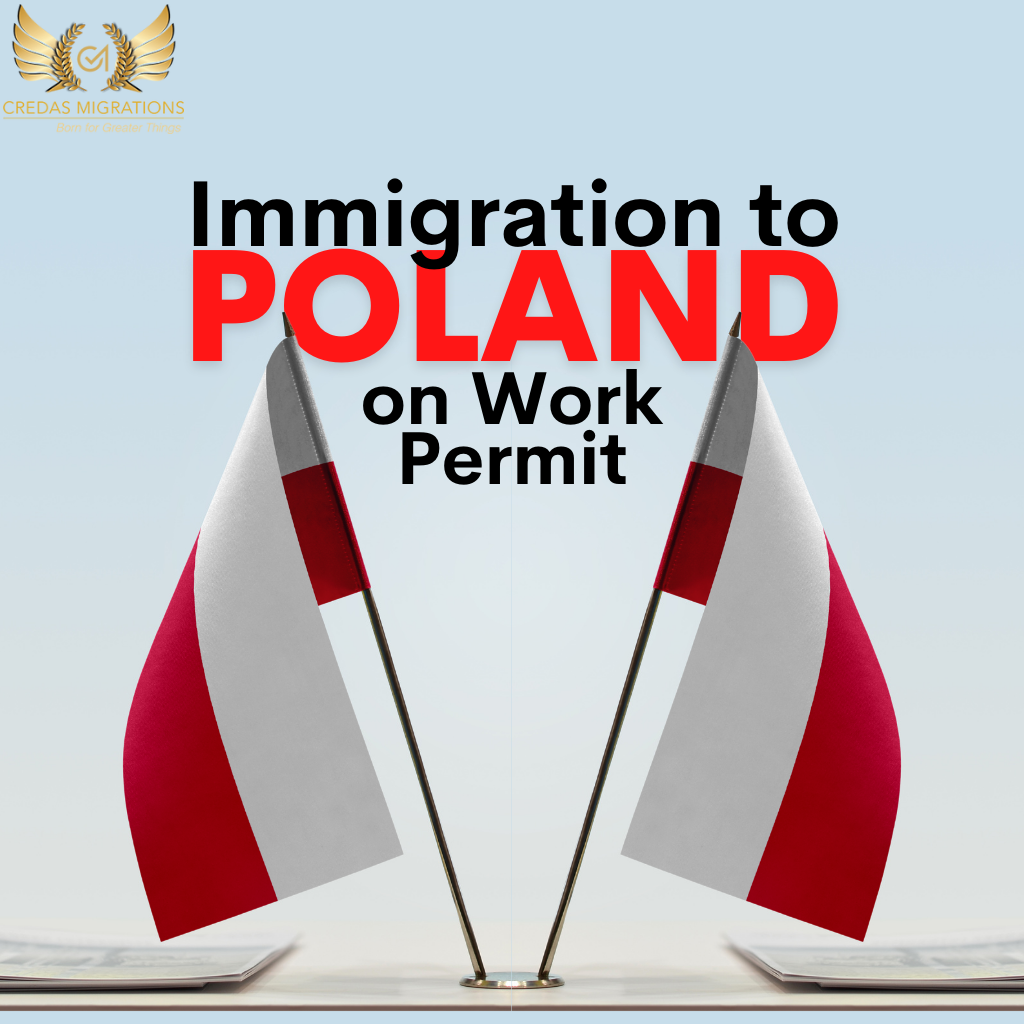Introduction
Poland's strong economy and varied workers make it an excellent place for companies and workers. Understanding the country's employment system is crucial for businesses wanting a driven and successful team. It includes company sponsored work visa and employee perks. This detailed guide will explain how to provide employee benefits in Poland. It will shed light on mandatory and non-mandatory aspects of getting an employer sponsored visa for Poland to help employers create a conducive and supportive work environment.
Poland's strong economy and varied workers make it an excellent place for companies and workers. Understanding the country's employment system is crucial for businesses wanting a driven and successful team. It includes company sponsored work visa and employee perks. This detailed guide will explain how to provide employee benefits in Poland. It will shed light on mandatory and non-mandatory aspects of getting an employer sponsored visa for Poland to help employers create a conducive and supportive work environment.
What is an Employer Sponsored Visa for Poland?
If you've secured a job in Poland, you'll likely need a Poland sponsorship visa to kickstart your employment journey. Non-EU citizens are required to obtain this visa, and it's essential to understand the process and requirements.


Types of Polish Sponsorship Visa
Before applying, familiarize yourself with the types of Poland work visa permits:
- Work Permit A: A Poland work visa permit is necessary for those with a job offer from a Polish-registered business.
- Work Permit B: Required for board members planning to reside in Poland for over six months.
- Work Permit C: If delegated to Poland by a foreign employer to work for their Polish branch for more than 30 days.
- Work Permit D: If commissioned by a foreign employer for export services with no Polish branch.
- Work Permit S: Necessary for those sent to Poland for agricultural, hunting, fishing, or accommodation activities.
Mandatory Employee Benefits
There are some mandatory employee benefits commonly provided through Poland work visa permit:
- One fundamental aspect is medical examinations. New hires, young employees switching positions, and those exposed to strenuous conditions undergo initial medical examinations. The frequency of periodic examinations depends on the nature of the job, ranging from once a year to once every five years.
- Occupational safety and health training are essential. General training, conducted by the employer or an authorized representative, is complemented by more in-depth "Toolbox Talk" sessions.
- Employers with over 50 full-time employees must provide ZFŚS allowance. Meeting transfer requirements within specified deadlines ensures employees benefit from these funds.
- Certain employees are entitled to additional benefits, including co-financing for corrective eyeglasses, provision of drinks and recovery meals, providing work or protective clothing, and an allowance for work clothes and laundry.
Non-Mandatory Employee Benefits
There are also some non-mandatory employee benefits provided in Poland through company sponsored visa for Poland These are as follows:
- Extending beyond statutory obligations for annual leave, certain firms allocate extra days off, typically ranging from 27 to 30 per year, to promote a more balanced work-life interplay.
- Reimbursement for public transport costs or providing a company car sometimes goes above and beyond legal requirements to make commuting smoother.
- Employers can extend beyond the mandatory PPK by introducing supplementary Employee Pension Plans (PPE) to promote long-term saving, empowering employees to secure their financial future effectively.
- Tech companies often provide supplemental life insurance as a standard offering, signifying their dedication to safeguarding employee well-being.
- Reimbursing employees for mobile expenses incorporating personal usage is a thoughtful reflection of their connectivity needs.
Conclusion
In summary, providing advantages to workers in Poland goes beyond merely adhering to principles; it's about fostering an environment where laborers thrive. This guide explores mandatory and non-mandatory aspects, shedding light on worker-supported visas employers offer. A conducive climate is crucial, ensuring legal compliance and genuine worker satisfaction.
In summary, providing advantages to workers in Poland goes beyond merely adhering to principles; it's about fostering an environment where laborers thrive. This guide explores mandatory and non-mandatory aspects, shedding light on worker-supported visas employers offer. A conducive climate is crucial, ensuring legal compliance and genuine worker satisfaction.

